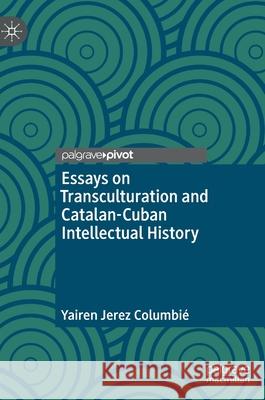Essays on Transculturation and Catalan-Cuban Intellectual History » książka
topmenu
Essays on Transculturation and Catalan-Cuban Intellectual History
ISBN-13: 9783030730390 / Angielski / Twarda / 2021 / 107 str.
Kategorie BISAC:
Wydawca:
Palgrave MacMillan
Język:
Angielski
ISBN-13:
9783030730390
Rok wydania:
2021
Wydanie:
2021
Ilość stron:
107
Waga:
0.29 kg
Wymiary:
21.01 x 14.81 x 0.79
Oprawa:
Twarda
Wolumenów:
01
Dodatkowe informacje:
Wydanie ilustrowane











